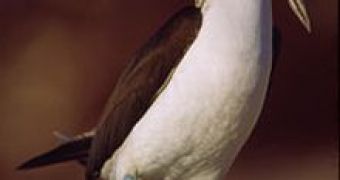Sick birds that fear they don't have much longer to live take much better care of their offspring. This is what the modern genetic theory predicted and now has been verified by experiment.
According to the modern theory of evolution, natural selection does not act at the level of the individual but at the level of the gene. The struggle for survival is not between individuals (or even less between species), but between the individuals' construction recipes - their genes.
This is the theory that explains altruistic behavior. For example, why does a father bird take care of its offspring? The reason is that the offspring has half of the fathers' genes. What happens is that the father's genes are taking care of their own carbon copies persisting inside the offspring. The father is like a robot or puppet that does what the genes are telling him to do - i.e. taking care of its offspring.
So, according to this theory, if the father is sick and doesn't have much time to live (he is also relatively old) - and therefore doesn't have much chances of having additional offspring spreading his genes even further - it is expected that his genes would tell him to take very good care of the offspring he already has. On the other hand, if the father is relatively young, the genes are expected to tell him to focus on himself in order to get well and have more chicks later in life.
This prediction has now been verified in case of birds. Indeed, this is exactly what sick father birds do.
A team led by Roxana Torres, a biologist at the Mexican National Autonomous University in Mexico City, studied the blue-footed booby as a test case. These birds usually live for around 15 years, and their chicks require baby-sitting from both mother and father for 6 months.
The researchers captured 50 males from a booby colony 2 weeks before their mates were due to lay eggs. Then, they injected some of the birds with a molecule from the cell wall of E. coli, a molecule that doesn't pose a real threat to the birds' lives but causes the symptoms of infection and props up the immune system. Other birds, the controls, were injected with a solution having no effects on the birds.
Scientists have found that younger "infected" dads, between the age of 3 and 9, had 18% fewer successful chicks than the "uninfected" controls, while older "infected" dads, over the age of 10, doubled their efforts and took care of their offspring so well that the number of successful fledglings was boosted up to 98%.
This experiment has thus shown that natural selection indeed works at the level of the gene and not at that of the individual (or species) and that the point in evolution is for the genes to survive and perpetuate themselves and not necessarily for the individual to survive.
Photo Credit: Claudio Contreras Koob / SEMARNAT

 14 DAY TRIAL //
14 DAY TRIAL //